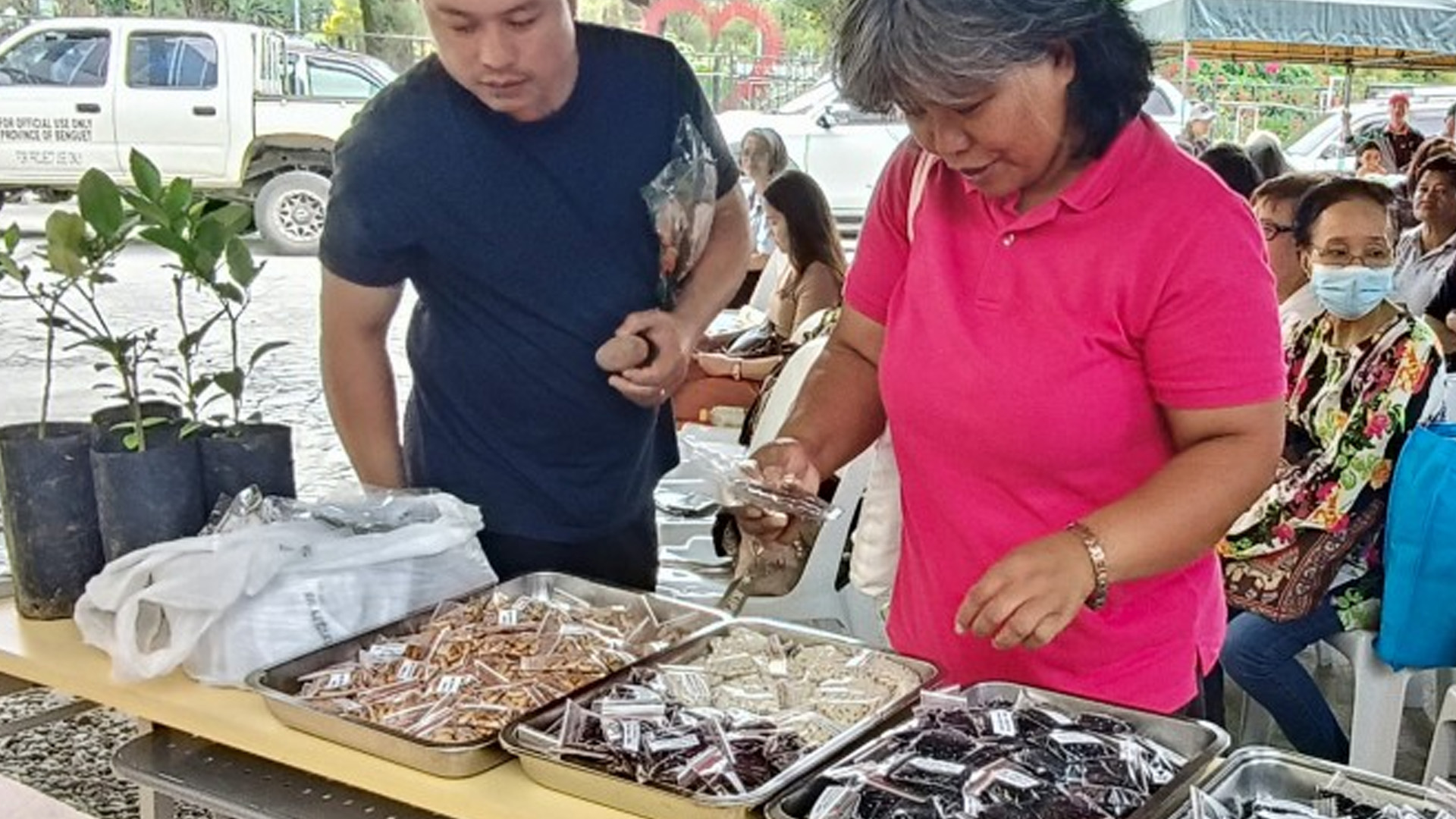The “binnadang” (helping without expecting something in return) and “supon” (financially helping) traditions in this province have evolved, this time ensuring there will be food on every Igorot family’s table through a seed exchange program.
“We do seed exchanges so that the seeds we want to be planted for food do not have to be bought. We can exchange our seeds with the seeds of the others,” Carole Domicog, a beans seed keeper and collector, said in an interview Tuesday during the seed exchange activity of the Department of Agriculture-Agricultural Training Institute-Cordillera Administrative Region’s (DA-ATI-CAR) High Value Crop Development Program at Benguet State University.
Domicog said she grows purple beans from the beans that she got from her mother-in-law, who used to regularly grow them in the late 1990s.
“My mother in-law told me that I should grow the beans and produce my own seedlings so that I do not have to always ask from her, which I did and continue to improve through the seed exchange activities so that I can also share the same to the others,” Domicog shared during the program.
She said that when the seed is planted in a different soil and environment, the seed adopts its genes, resulting in improved quality.
Dr. Divina Jose, a researcher at the DA’s Bureau of Plant Industry (BPI), said the system of exchanging seeds is a way of preserving them, especially the heirloom ones.
It also ensures no oversupply because backyard and urban gardeners have limited seeds to plant but give sufficient amount of care to ensure a robust growth and good production.
“We have more than 20 beans seeds in our library which have undergone genetic profiling and at least 70 percent of them came from seed exchange activities,” she said.
Dr. Aida Pagtan, head of the Regional Agriculture and Fisheries Information Service, said that in the Cordillera culture, “binnadang” is simple sharing and “supon” is giving the beneficiary the opportunity to give back.
“During weddings, we give supon, we also give during wake and we give back to the giver when their time to marry or someone in their family passes away. This is our way of sharing with the family during their happiness or during their distress to make things happen or make the load lighter,” she said in Ilocano.
She added that when the culture of sharing has evolved into involving seeds for planting, people who wanted to plant for personal use was enabled with seeds provided by other growers.
“With the activity, backyard farmers do not need to buy seeds that cost much so that they can plant. They will be able to pursue planting for their food or to add a little income from those they get in seed exchanges,” Pagtan shared.
With the seed exchange activity, the government’s concerns on procurement of seeds for distribution is also addressed, thus continuously ensuring the country’s goal to produce food for the table.
Dr. Charlie Sagudan, center head of the DA-ATI-CAR, said they will pursue this activity at a bigger scale starting next year so more who will benefit. (PNA)







